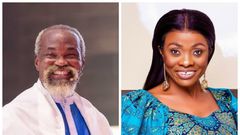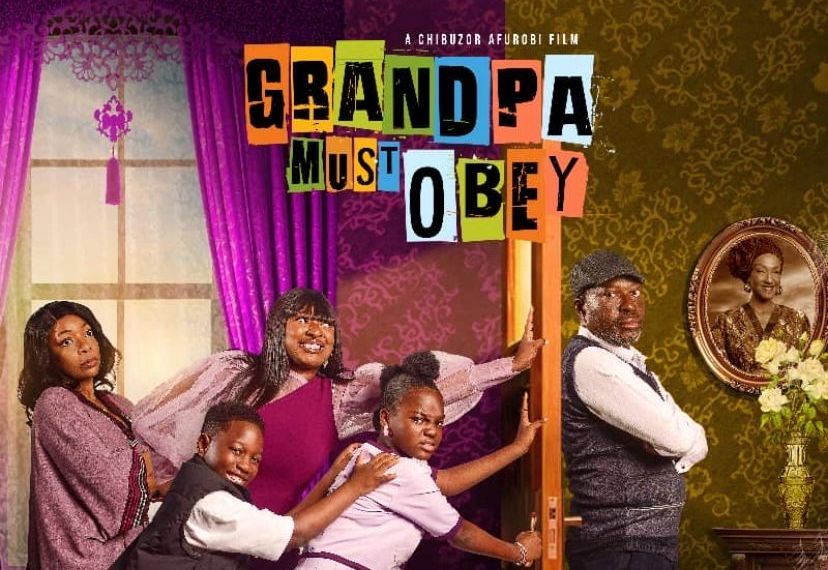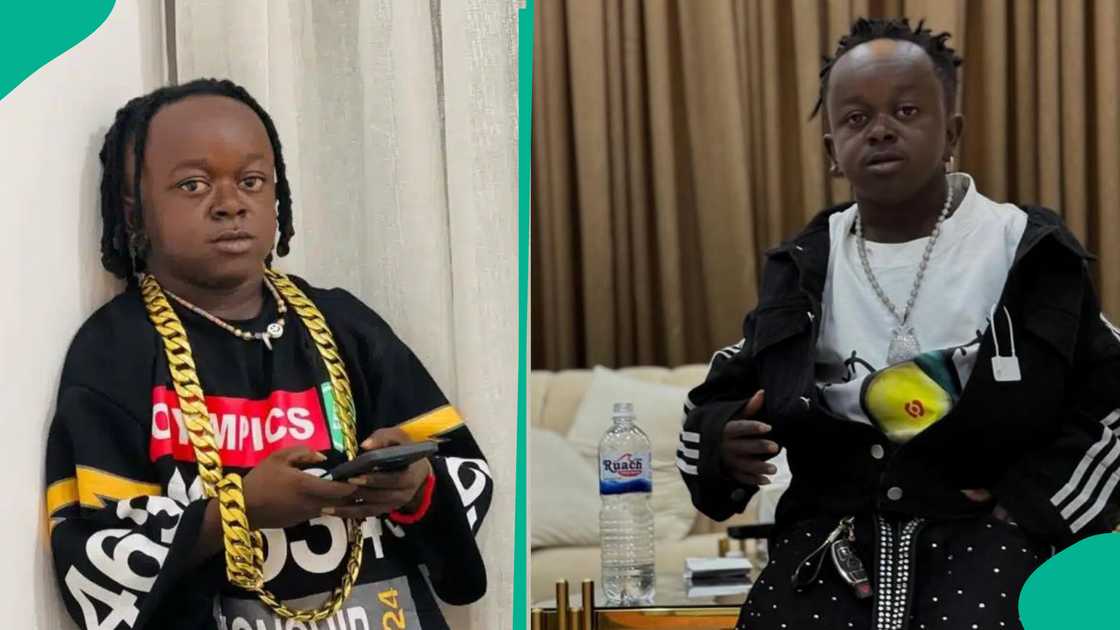The ongoing drama in Ghana’s entertainment and religious circles has caught the attention of West Africans, especially as prominent figures like actor-comedian Kwadwo Nkansah—better known as Lil Win—step into the fray. In recent days, Lil Win has publicly voiced his disappointment with Dr. Kwaku Oteng, the highly influential owner of Angel Broadcasting Network (ABN), for what he described as “worrying silence” during the escalating feud between gospel singer Diana Asamoah and the controversial preacher, Adom Kyei-Duah. For many observing from Nigeria and across West Africa, the saga brings insight into the delicate interplay between media, religion, and celebrity culture in the region.
At the centre of the dispute are serious allegations and emotional outbursts, broadcast for millions to witness. According to Lil Win, Dr. Oteng’s absence from the conversation has contributed to the tension spiraling far beyond what it should have. This latest flare-up follows a high-profile broadcast on the popular morning programme Akoko Abon Kokrokoo, aired on Angel FM, in which Diana Asamoah openly labeled Adom Kyei-Duah a “false prophet,” even going as far as to connect him with her sister’s tragic death—a claim that has shocked communities in both Ghana and neighbouring Nigeria, where many people closely follow developments in Ghana’s vibrant music and religious scenes.
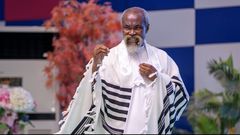
Lil Win’s reaction, shared across various social media platforms and entertainment outlets, was one of visible frustration and disapproval. Not only did the Kumawood star condemn Diana Asamoah’s bold remarks, but he also criticized Angel FM’s editorial oversight, questioning why the radio station would provide a stage for such damaging accusations without proper checks. As Lil Win put it, unfiltered public attacks can foster division and mistrust—not just among followers of the feuding personalities, but also within the broader West African audience that tunes in for inspiration and spiritual guidance.
“Your workers respect you, just as we respect Adom Kyei-Duah. I’m pleading with you, Dr Kwaku Oteng—please advise the lady who keeps mocking Adom Kyei-Duah. Angel FM should take action before things get out of hand,” Lil Win appealed during an emotional address, according to regional media reports.
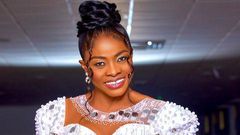
Diana Asamoah
He further accused Angel FM’s handlers of neglecting their responsibility to maintain peace and decorum, referring to the broadcast as “baseless and inflammatory commentary” that should not have been allowed to air without editorial balance. These concerns echo broader questions about media ethics in West Africa, where stations are frequently expected to balance freedom of expression with their duty not to inflame social and religious tensions.
This isn’t the first time Diana Asamoah and Adom Kyei-Duah have exchanged harsh words in the public eye. Their dispute has persisted for over a year—making headlines and fuelling fierce conversations on social media platforms like X (formerly Twitter) and Facebook across the sub-region. According to news analyses from Accra to Lagos, both parties have consistently lobbed allegations against one another. In a recent twist, Adom Kyei-Duah shot back by alleging that sympathizers of Ghana’s New Patriotic Party (NPP) and their associates have actively targeted him and his church, further politicizing the conflict and drawing in heavyweights from both religious and political spheres.
Regional Resonance: Why Nigerians and West Africans Are Watching
In Nigeria, religious and media controversies are no strangers to the public discourse. The Ghanaian saga has drawn keen interest among Nigerians who face similar debates over the role of faith leaders, freedom of speech, and responsible journalism. With a population deeply invested in the authenticity and credibility of religious figures, many in Nigeria view these clashes as cautionary tales about unchecked commentary, especially when broadcast to millions.
“We’ve seen comparable tensions during high-profile confrontations between church heads and pastors here in Lagos,” notes communications analyst Bola Okanlawon. “The difference in Ghana is the involvement of celebrities and a major media owner, which raises the stakes and compels conversations about who holds influence in shaping public opinion.”
- Media houses in both Ghana and Nigeria are expected to operate with fairness and transparency, especially with topics that touch on faith or allegations of criminality.
- Regulators in both countries are increasingly scrutinising media broadcasts to prevent harmful rhetoric—although the practical enforcement of such oversight remains inconsistent.
- Audience members, particularly on social media, often drive these debates further, supporting or condemning personalities involved in real-time.
The Role of Influencers and Media Owners
As is evident in the rising profiles of entertainers and business magnates in Nigeria and Ghana, voices like Lil Win’s can shape the narrative and, sometimes, apply pressure for reform. Dr. Kwaku Oteng, himself a leading figure in Ghana’s business and philanthropic circles, also owns a wide array of media outlets, making his perceived silence particularly significant.
According to Samuel Antwi, a veteran Ghanaian journalist, “Whenever prominent proprietors like Dr. Oteng refrain from commenting on issues within their network, some see it as tacit approval, while others believe it’s a calculated attempt to remain impartial.” This tension reflects broader patterns in media regulation across West Africa, where owners regularly face criticism over the actions—or inactions—of their broadcasters.
The question of responsibility goes beyond personal feuds. Media watchdogs in Accra and Abuja have repeatedly reminded radio and TV stations about their codes of conduct, issuing periodic warnings and, in some high-profile cases, sanctions when broadcasters are found to promote divisive or unbalanced content.
Public Reaction and Path Forward
The reactions from the public in Nigeria, Ghana, and across the African continent have been mixed. While some believe media freedom must allow the full spectrum of opinions—even heated ones—others insist the time has come for owners and editors to step in before words become damaging. As seen in previous Nigerian controversies involving spiritual leaders, it is often the community that suffers most when disputes spiral unchecked.
According to public feedback gathered via radio call-ins and digital town halls across both countries, many call for cooler heads to prevail. Legal commentators and social media users alike have called upon regulators and media houses to devise better systems for handling on-air confrontations, suggesting structured debate formats, editorial delays, or after-the-fact apologies to mitigate harm.
At its heart, this Ghanaian controversy is a mirror to similar struggles in Nigerian society: how to preserve public trust in spiritual and media institutions, and how to draw the line between robust debate and harmful accusation. In an environment where faith and fame often intersect, the effects—good or bad—are rarely confined within national borders.
Looking Ahead: Lessons for Africa’s Media and Faith Communities
The ongoing stand-off between Diana Asamoah and Adom Kyei-Duah, amplified by voices like Lil Win’s and the mass reach of Angel FM, provides important lessons for Africa’s rapidly evolving media landscape. For media owners and broadcasters from Lagos to Accra, the key learnings are clear:
- Editorial Responsibility: Media platforms must maintain well-defined boundaries, especially with live commentary on sensitive personal or spiritual matters.
- Public Accountability: Celebrities and influencers must recognize their reach and impact, striving to promote peaceful resolutions over inflammatory statements.
- Community Involvement: Listeners and viewers should demand balanced coverage, using their feedback to encourage higher standards in local broadcasting.
- Legal Oversight: Regulators must consistently enforce anti-defamation and public decency laws, holding violators—regardless of stature—accountable.
As Ghana, Nigeria, and other West African countries continue to grapple with the challenges of digital-era communication, collaborative solutions that respect both freedom and civility are more crucial than ever.
What do you think about Lil Win’s intervention and the ongoing feud between Diana Asamoah and Adom Kyei-Duah? Should media owners step in more firmly during such clashes, or does this threaten freedom of expression? Share your thoughts below and let’s keep the conversation going!

